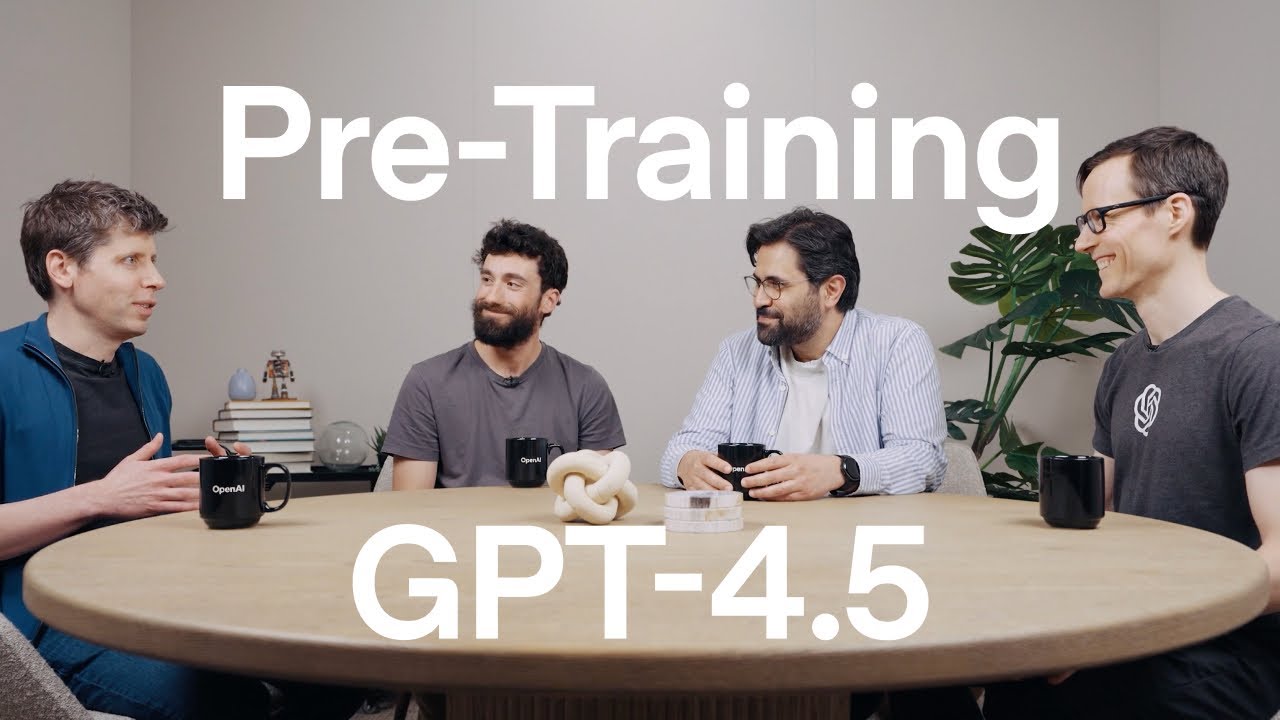The OpenAI team discussed the extensive research and collaborative efforts involved in developing GPT-4.5, highlighting the challenges of scaling AI models and the importance of data efficiency and algorithmic innovations. They reflected on their experiences during training, emphasizing teamwork in overcoming obstacles and expressing optimism for future advancements in AI development.
In a recent discussion about the development of GPT-4.5, the OpenAI team shared insights into the extensive research and collaborative efforts that went into creating the model. The team, consisting of experts in machine learning, data efficiency, and system architecture, highlighted the significant time, resources, and manpower required to build such a large-scale AI model. They emphasized that the project began two years prior to the launch, involving extensive planning, risk assessment, and preparation to ensure a successful training run.
The conversation delved into the complexities of scaling up AI models, noting that moving from smaller to larger systems introduces various challenges. The team explained that issues that may seem minor at a smaller scale can become catastrophic when scaled up, leading to increased failure rates and unexpected bugs. They discussed the importance of balancing the need for rapid progress with the necessity of addressing these unforeseen issues, often leading to a choice between launching early or delaying for further refinements.
The team also reflected on the lessons learned during the training of GPT-4.5, particularly regarding data efficiency and algorithmic innovations. They noted that while the model achieved its goal of being significantly smarter than its predecessor, the process revealed that improvements in data efficiency are crucial for future advancements. The discussion highlighted the need for new algorithms that can leverage existing data more effectively, especially as the growth of data lags behind the increase in computational power.
Throughout the training process, the team experienced both challenges and successes, with moments of excitement when significant performance boosts were achieved. They shared anecdotes about troubleshooting bugs, including a particularly memorable incident where a seemingly minor bug in a Torch function turned out to be the root cause of multiple issues. This experience underscored the importance of teamwork and collaboration across different disciplines within OpenAI, as they worked together to resolve problems and enhance the model’s performance.
In conclusion, the team expressed optimism about the future of AI development, particularly in terms of scaling laws and the potential for further advancements in model intelligence. They acknowledged that while there are still many challenges to overcome, the insights gained from GPT-4.5 will inform future projects. The discussion highlighted the ongoing need for innovation in both machine learning algorithms and system design to continue pushing the boundaries of what is possible in AI.
